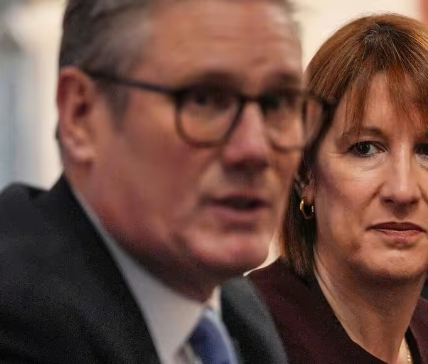Environment Secretary Steve Reed has pledged to halve sewage pollution by 2030.

Protesters campaign against water firms dumping sewage in nation’s rivers (Image: Getty)
The Environment Secretary has pledged to slash sewage pollution from water companies in half by 2030. Steve Reed will announce the goal on Sunday, with the Government saying it marks the first time ministers have set a clear target on reducing sewage pollution to which they will be held accountable.
But Giles Bristow, chief executive of Surfers Against Sewage, said: “If ministers believe rehashed pledges and PR spin will silence the roar for real reform of our failing water sector, they’re sorely mistaken. There’s no commitment here to overhaul the profit‑driven system responsible for the sewage crisis—even slashing pollution by 50% still means 200,000 raw‑sewage spills a year by 2030. We demand clean water—half‑measures that perpetuate a status quo where pollution pays are simply unacceptable.
“Steve Reed and the Prime Minister must stop hiding behind hollow press releases and deliver true change—now.”
Labour ministers are aiming to cut phosphorus from treated wastewater in half by 2028 compared to 2024 levels, a pollutant that causes algae blooms which are harmful to wildlife.
The overhaul of the sector comes as ministers brace for the publication of the Independent Water Commission’s landmark review into the ailing water sector tomorrow (MON) morning.
Sir Jon Cunliffe’s commission was set up by the UK and Welsh governments as part of their response to systemic failures in the industry, although ministers have ruled out nationalising companies.
The Government will respond to the recommendations in Parliament on Monday.
Jamie Cook, CEO of the Angling Trust, comments: “Anglers have heard it all before — pledges, promises, and grand plans to fix the sewage scandal. Yet year after year, water pollution gets worse, not better.
“The water industry has been allowed to pollute with impunity for too long by successive governments. Reform must be urgent, enforced, and rooted in reality, not rhetoric.
“This government — like those before it — will be judged on outcomes, not headlines.”
There is already a storm overflow discharge reduction plan, which has set targets on reducing spills, including a 75% reduction in discharging into high priority sites, such as rare chalk streams, by 2035.
An existing statutory target is also in place to reduce phosphorus loadings from treated wastewater by 80% by 2038 against a 2020 baseline, as well as an interim goal of a 50% reduction by the end of January 2028 under the environmental improvement plan (EIP).
Victoria Atkins MP, Shadow Secretary of State for Environment, Food and Rural Affairs, said: “Labour came to power with big promises to reform the water system, but so far, they have simply copied previous Conservative Government policy and have done nothing to stop water bill rises.
“Labour must be transparent about where the £104 billion investment is coming from as some will come through customer bill rises. They claim this while they have failed and hindered attempts to secure the funding needed to stabilise Thames Water. Labour’s water plans must also include credible proposals to improve the water system’s resilience to droughts, without placing an additional burden on bill payers and taxpayers.
“It is, however, welcome that Steve Reed is building on our work to monitor storm overflows, achieving 100 per cent monitoring since 2023, compared to just 7% under the last Labour Government. Labour must continue our work to improve Britain’s water system and bring forward genuine reform.”
Mr Reed’s announcement is part of ongoing efforts to respond to widespread public anger over record sewage spills and rising bills, against a backdrop of poor governance at debt-ridden water firms.
He said: “Families have watched their local rivers, coastlines and lakes suffer from record levels of pollution.
“My pledge to you: the Government will halve sewage pollution from water companies by the end of the decade.”
The Environment Agency on Friday revealed that serious pollution incidents caused by water firms across England increased by 60% last year compared with 2023.



